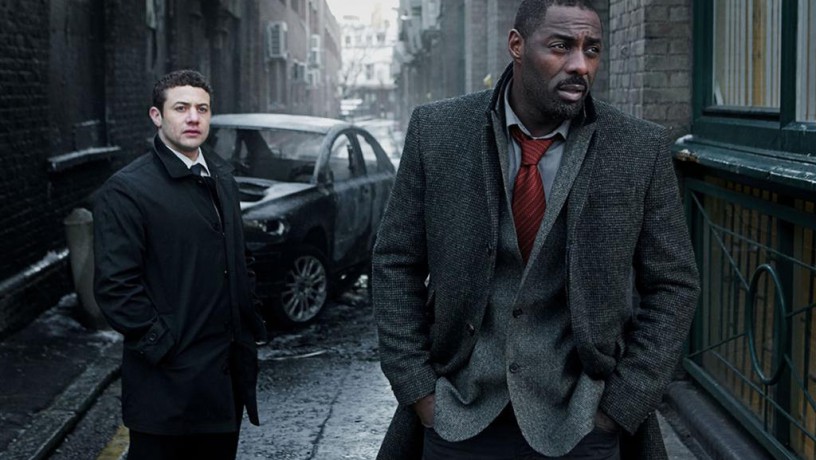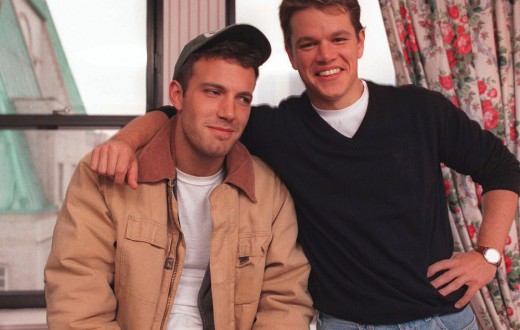“I knew that if I wanted to be all I could be, I would have to go to the U.S. It took three years to get the accent right.” –Idris Elba
If you’re like me, tuning in to watch “The Wire” was your introduction to the great talent of Idris Elba, the actor who played Stringer Bell on that modern classic series. And the last thing anyone unfamiliar with his work to that point might have thought is that he wasn’t from the U.S., such was his command of that gnarly Ballmer dialect (Baltimore, to the uninitiated.)
So seeing him in an interview and realizing he’s from East London was a bit of a shock–surely I wasn’t the only Yank to feel that way!
But having read the above quote regarding the amount of time and work he put in to develop and perfect his American accent, suddenly it all made sense: you don’t get the command, natural delivery and ease of language he had as Bell without a ton of work.
So what about the poor actor who is up for a part requiring a dialect? I don’t know about you, but if I waited three years between auditions to develop a dialect with the care that Elba invested, I would have long since found myself starving in the streets.
So let’s look at some ways to approach the dialect audition in such a way as to minimize your stress and maximize your chances of booking the role!
1. Acting is still action
The first thing to do is to approach the audition as you would any other: look at the piece as a whole, the scene, and the character you’re reading for as well as the other characters in the scene and your relationship with them. Then, identify your objectives and some potential tactics to achieve the goals your character wants to achieve with those characters. The accent is and must be secondary to the acting at this point. As anyone knows who has ever worked on a show or film requiring a dialect, there will be plenty of time, practice and coaching involved in getting it just right. Yes, it will benefit you in the audition to have some rudimentary grasp on the contours of the language. But let’s face it, casting directors are looking for actors, not talking heads. The prettiest dialect in the world will be worth nothing at an audition if it isn’t backed up by acting. And if all you’re thinking about is the dialect, you won’t even be acting, not at your best anyway. Don’t let the dialect aspect distract you from the actual work at hand.
2. Be specific
Specificity is a very important word when it comes to playing an action, as we all know, but it’s no less important when it comes to a dialect. There’s nothing more jarring than to hear a dialect that is wrong for the specific place or the character. Having spent a lot of years in the South, hearing an actor using a generic Foghorn Leghorn dialect in a film or play set in the South causes the emotional equivalent of fingernails scratching a chalkboard. It’s surely the same for people from the U.K. who hear a Dick Van Dyke chimneysweep dialect being employed to represent Anyplace, England. Research the character, where they are from, and how people really sound from there. It’s vital to think specificity: there’s a difference between dialects of Texas and North Carolina, sure, but there’s also a difference between Alabama and Georgia. And then there are differences in dialects based on education and income level, among a myriad of other factors. With YouTube and the ubiquity of media these days there is no excuse for not taking some time to listen to real people from the place you are being asked to represent. A genuine portrayal requires nothing less–even in the short, horribly telescoped time in which we are usually asked to prepare for an audition. You have an internet connection: use it!
3. Get help
That said, some of us have a better ear for dialects and imitating them than others. So don’t trust yourself–find someone who can help. Whether it be a dialect coach, an actual human from that place, or even an experienced actor who has been called on to play parts featuring such a dialect, it’s incumbent on you to run it by someone once you have worked on it a bit. Granted, this is easier said than done if you get the call to audition the night before. Still, surely in this day and age we all have a friend or a friend of a friend–or barring that, a barista or office mate–who knows someone who can help.
4. But there is other help
However, there are other options if a real live human specimen from Galway or Minsk or Montgomery should prove unobtainable the night before a big audition. There are tons of CDs and books out there, many of which are available for download. Robert Blumenfeld is an excellent resource for a ridiculous number of dialects, as is Edda Sharpe and Paul Meir. Also, you might look up videos posted by IDEA Dialects, the International Dialects of English Archive which features tons of real people of various ages, genders and backgrounds speaking in their native dialects. You can search by continent, country and region, and it’s a great resource, especially if you’re pressed for time.
5. Do some advance work
We keep talking about being under the gun for an imminent audition, and the potential difficulty of finding resources to help you with a dialect in those circumstances. But the truth of it is that, if you are or wish to become a working actor, dialects should and must be a part of your arsenal. To that end, investing in a book that comes with CDs featuring exercises to help you master a variety of dialects and having it on hand as needed is well worth it. To go a step further, there are a few broad dialects that come up pretty regularly and which we should all at least have a rudimentary grasp on: Standard British, London, Irish, Southern U.S., and New York for example. Yes, of course there are dozens of New York dialects, and probably hundreds of British ones, and so this contradicts the “specificity” tip above. But if you have at least the broad outlines of a region, when you are asked to home in on one specific place within it, it becomes a much easier task, especially if you’re pressed for time. To go from zero to sixty on, say, an Irish dialect is much more difficult than massaging a general Irish accent into an Ulster dialect.
The bottom line in dialect work is, like every other aspect of top-notch acting, work! As Idris Elba pointed out, this is one area in which you can’t afford to slack off or simply hope for the best on the day.







